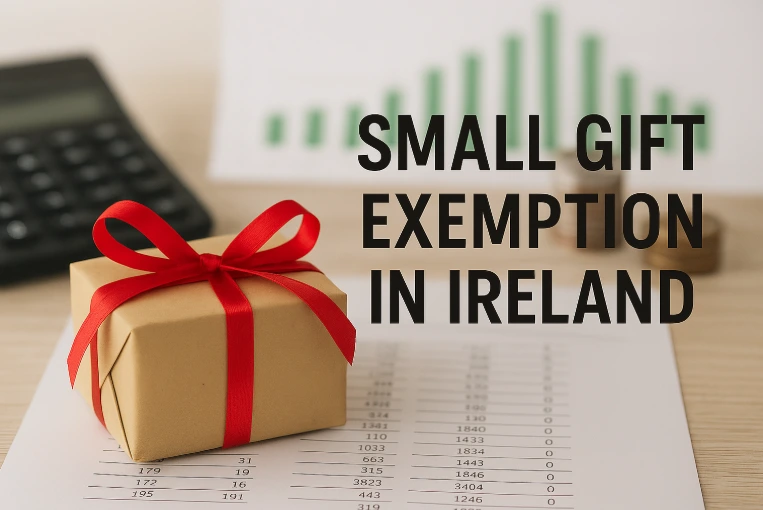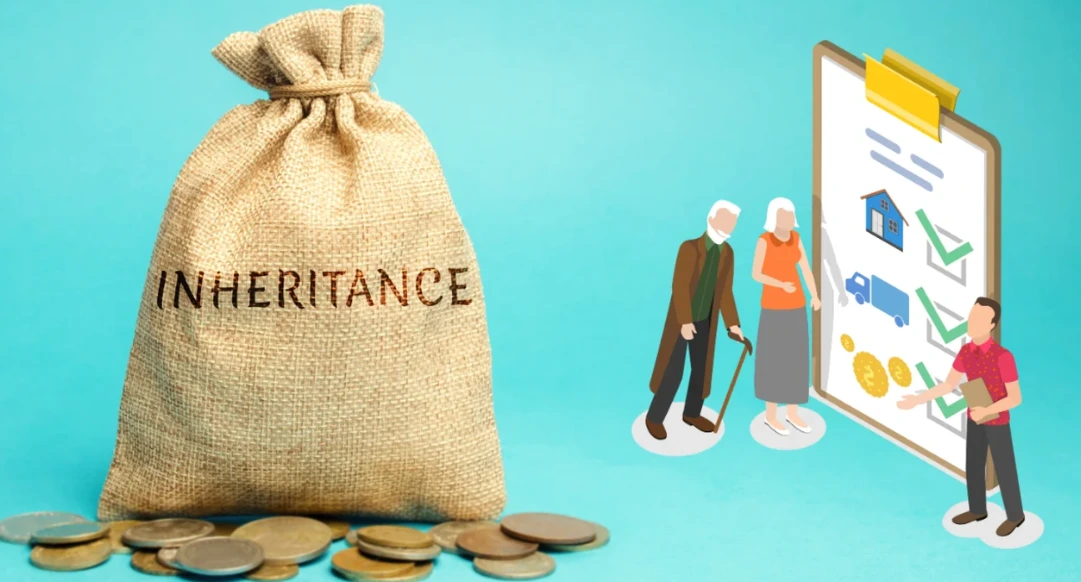Estate planning can seem like a daunting task, but it doesn’t have to be. Whether you’re just starting your career, raising a family, or enjoying retirement in Ireland, thinking about how you want your assets managed after your passing is essential. It’s not just for the wealthy; estate planning is crucial for everyone.
Imagine having peace of mind knowing that your loved ones will be taken care of and that your wishes will be respected. Estate planning allows you to control what happens to your property and finances when you’re no longer around. From wills to trusts and tax strategies, there are several components involved in creating an effective plan tailored to meet your needs.
In today’s blog post, we’ll break down the essentials of estate planning—making it simple so that you can start securing tomorrow today. Let’s explore why this important process matters in Ireland and how easy it is to take those first steps towards peace of mind for yourself and love for those who matter most.
Why Estate Planning is Important in Ireland
Estate planning is a crucial aspect of financial security in Ireland. It ensures your assets are distributed according to your wishes after you pass away. Without a plan, the state decides how your estate is divided, which may not align with your intentions.
Inheritance laws can be complex, and navigating them without proper guidance can lead to disputes among heirs. A well-structured estate plan helps minimise family conflicts and promotes harmony during difficult times.
Additionally, effective estate planning allows individuals to consider inheritance tax implications. By strategically gifting money or setting up trusts, families can significantly reduce their tax burdens while ensuring loved ones receive maximum benefit from their estates.
It’s also vital for protecting vulnerable beneficiaries—be it children or dependents needing special care. Having an estate plan safeguards their future and provides peace of mind knowing they will be taken care of as intended.
Key Elements of an Estate Plan
Creating a comprehensive estate plan involves several key elements that work together to secure your legacy.
At the forefront is a well-drafted will. This document outlines how you want your assets distributed after your passing, ensuring that your wishes are respected.
Next comes the establishment of trusts. Trusts can help manage assets during your lifetime and ensure they’re passed on according to your specifications. They offer privacy and can protect beneficiaries from creditors.
Don’t overlook powers of attorney for both health care and finances. These legal documents appoint someone to make decisions on your behalf if you’re unable to do so yourself.
Additionally, consider including directives for end-of-life care in case you cannot communicate your wishes. Each element plays an essential role in safeguarding not just financial interests but also personal values and family harmony.
Creating a Will
Creating a will is a fundamental step in estate planning. It determines how your assets will be distributed after you pass away. Without it, the law decides for you, which may not align with your wishes.
- Start by clearly identifying your beneficiaries. Consider family members, friends, or charitable organisations that matter to you. Be specific about what each person will receive to avoid confusion later on.
- Next, appoint an executor—someone you trust to carry out your wishes. This person plays a crucial role in managing the distribution of your estate and ensuring all debts are settled.
- Don’t forget to review and update your will regularly. Life changes, such as marriages, divorces, or births, can impact who should inherit from you. Keeping it current ensures that it reflects your true intentions and provides peace of mind for those left behind.
Trusts and Their Role in Estate Planning
Trusts serve as powerful tools in estate planning, offering flexibility and control over asset distribution. They can protect your wealth while ensuring it is managed according to your wishes.
A trust allows you to designate a trustee, who oversees the assets on behalf of beneficiaries. This arrangement helps avoid probate, which can be time-consuming and costly for families dealing with loss.
Different types of trusts exist—revocable trusts offer adaptability during your lifetime, while irrevocable trusts provide permanent protection from estate tax.
For many individuals looking into family estate planning, establishing a trust is also about privacy. Unlike wills, which become public record upon death, trusts remain confidential.
When set up thoughtfully, they ensure that funds are available for specific purposes like education or healthcare needs of family members without immediate access to the entire inheritance.
Contact Money Maximising Advisors now and secure your family’s financial future with a personalised estate plan.
Tax Implications and Strategies for Estate Planning in Ireland
Understanding tax implications is crucial for effective estate planning in Ireland. The primary concern often revolves around inheritance tax, which can significantly reduce the value of an estate passed on to beneficiaries.
To mitigate these costs, individuals should explore various strategies. Gifting money during one’s lifetime is a popular approach. This allows family members to benefit sooner and potentially reduces the taxable estate.
Another option involves setting up trusts. Trusts can provide substantial control over how assets are distributed while also offering protection from inheritance tax liabilities.
It’s essential to stay informed about reliefs available under Irish law, such as agricultural or business property reliefs. These could help lessen your overall tax burden significantly.
Working with Money Maximising Advisors ensures that you navigate these complexities effectively and tailor a strategy suited to your circumstances and goals.
Steps to Start Your Estate Plan Today
Starting your estate plan can feel daunting, but breaking it down into manageable steps makes it easier.
- Begin by gathering essential documents like bank statements, property deeds, and insurance policies. Having everything in one place will help you see the big picture of your assets.
- Next, consider what you want to achieve with your estate planning. Do you wish to minimise inheritance tax? Perhaps you want to provide for family members or designate guardians for minors?
- Once you’ve outlined your goals, consult a qualified advisor. They can guide you through the intricacies of Irish law and recommend strategies tailored to your situation.
- Drafting a will is an essential step that should not be overlooked. It’s vital for ensuring that your wishes are honoured after you’re gone.
- Regularly review and update your estate plan as circumstances change—life events like marriage, divorce or having children may necessitate revisions.
Benefits of Early Estate Planning
- Early estate planning offers peace of mind. By starting sooner, you gain control over how your assets will be distributed. This clarity can reduce stress for loved ones during difficult times.
- Another benefit is financial efficiency. Planning allows you to strategise around inheritance tax and estate tax, minimising potential liabilities. Smart decisions now can lead to significant savings later.
- Moreover, early planning fosters communication within families. Discussing wishes openly encourages understanding among heirs and prevents disputes down the line.
- Additionally, setting up trusts or designating beneficiaries while you’re able ensures that your intentions are honoured precisely as planned.
- This proactive approach also provides opportunities for gifting money before reaching asset threshold limits, which can enhance family wealth transfer strategies.
Taking these steps today secures a smoother tomorrow for everyone involved in your legacy.
Common Mistakes to Avoid in Estate Planning
Estate planning can be complex, and many individuals make common missteps that can lead to complications later on.
- One frequent error is failing to update your plan after major life events, such as marriage or the birth of a child. Your estate plan should evolve alongside your family.
- Another mistake is neglecting to discuss your wishes with loved ones. Open conversations can prevent confusion and conflict during difficult times.
- Some people overlook the importance of choosing appropriate executors and trustees. Selecting someone who lacks organisational skills may hinder the distribution process.
- Additionally, many underestimate potential inheritance tax implications. Proper planning can help mitigate these taxes and preserve wealth for heirs.
- Assuming that a simple will suffices for all situations often leads to unexpected challenges down the road. A comprehensive approach ensures every aspect of your estate is considered and managed effectively.
FAQ’S:
What is estate planning?
It involves preparing for the distribution of your assets upon death, ensuring your wishes are followed.
How do I start creating my estate plan?
Begin by listing your assets and identifying beneficiaries. Consulting a legal expert can provide guidance tailored to your situation.
What happens if I die without a will?
Dying intestate means that state laws dictate how your estate is divided, which may not align with your wishes.
Can I change my will later on?
Yes, wills can be amended or revoked at any time while you’re competent, reflecting changes in circumstances or intentions.
Is inheritance tax applicable in Ireland?
Yes, understanding inheritance tax thresholds and exemptions is crucial for effective estate planning.
Conclusion
Estate planning can seem like a daunting task, but it doesn’t have to be. Taking the first steps today can lead to peace of mind tomorrow. By understanding the importance of estate planning in Ireland and familiarising yourself with its key elements, you empower yourself and your loved ones.
Creating a will is just one aspect of this process, as trusts offer valuable avenues for managing your assets. It’s essential to consider tax implications too; inheritance tax planning can save your family from unexpected burdens down the line. Early engagement with estate planning steps not only safeguards your wishes but also maximises financial benefits for those who matter most.
Avoiding common pitfalls along this journey will ensure that you are well-prepared should anything unexpected arise. Remember that seeking professional advice from Money Maximising Advisors could provide additional insights tailored specifically to your situation.
Call Money Maximising Advisors today to start your estate planning journey with expert guidance.
related articles [Click now 👇]
- Gift/Inheritance Tax Savings Plans: How Do I Avoid Inheritance Tax on My Savings?
- Inheritance Tax Advice In Ireland: Where Can I Get Advice on Inheritance Tax?
- How to Avoid Paying Inheritance Tax in Ireland?
- How can I Reduce My Inheritance Tax in Ireland?
- What is the Most You can Inherit without Paying Taxes?
- Inheritance Tax Q&A: Get Answers To Your Most Pressing Questions About Protecting Your Family’s Inheritance
- Understanding the Tax Implications of Section 73 Policy in Ireland
- Section 72 Policies in Galway, Ireland: What happens if you can’t pay inheritance tax in Ireland?




